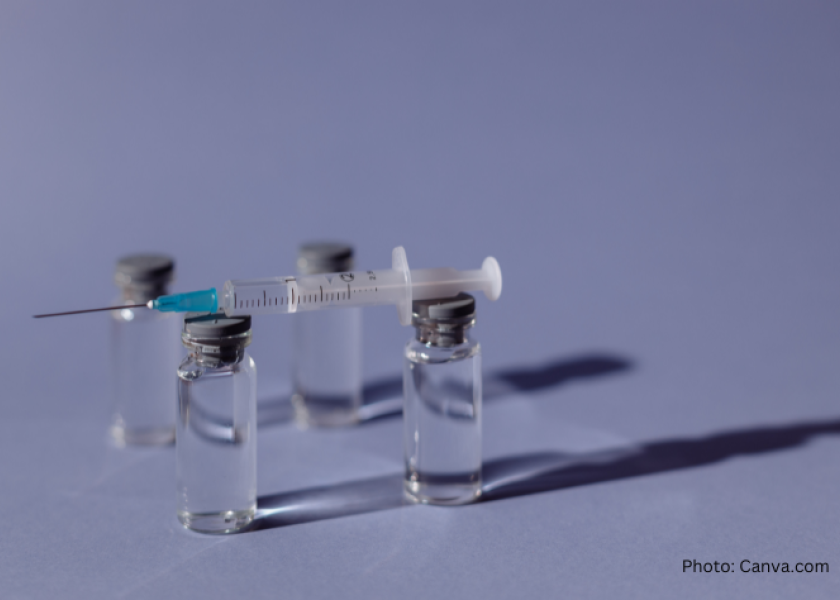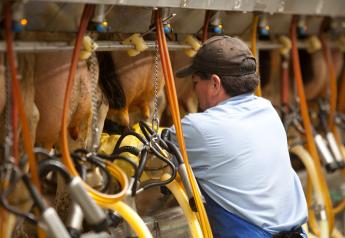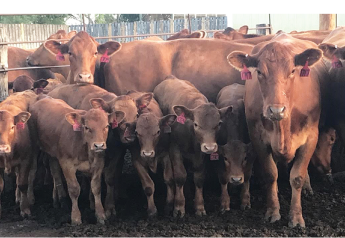New Center at Kansas State University to Drive Innovation in Animal Vaccines and Antimicrobial Alternatives

Launching the new Center on Vaccine Evaluation and Alternatives for Antimicrobials, or CVEAA, Kansas State University’s College of Veterinary Medicine aims to support animal vaccine development and usage, says a recent release.
The new center will provide innovative services to global partners and customers by conducting safety and efficacy evaluations of vaccines for transboundary animal diseases, helping animal vaccine buyers manage product specification and quality evaluation, and leading feasibility analysis and policy advocacy on vaccines as alternatives for antimicrobials used in animal production, says the release, with Jishu Shi, professor of vaccine immunology and one of the university's leading researchers on infectious swine diseases to serve as the center's director and one of three primary faculty members.
"The Center on Vaccine Evaluation and Alternatives for Antimicrobials is a research and service center designed to meet a series of unmet needs in the development and usage of animal vaccines around the world," Shi says in the release.
The center will focus on U.S. Department of Agriculture and Department of Homeland Security supported research projects and work closely with animal health industry partners in the following areas, says the release:
• Safety and efficacy testing of experimental vaccines for African swine fever, classical swine fever and porcine reproductive and respiratory syndrome.
• Co-development of novel adjuvants for animal vaccines.
• Evaluations of diagnostic tools for swine infectious diseases, novel antiviral compounds against swine viral pathogens, and novel disinfectants against African swine fever virus and other swine viral pathogens.
"Dr. Shi's research expertise in helping control the spread of African swine fever and his experience in building coalitions between a wide variety of partners in private industry and government agencies makes him uniquely qualified to lead this new center," says Bonnie Rush, Hodes family dean of the College of Veterinary Medicine, in the release.
The primary faculty members at the center will include Shi. Lihua Wang, research assistant professor of virology and vaccine immunology, and Rachel Madera, senior research scientist in anatomy and physiology, as well as a team of the following collaborating principal investigators from K-State's veterinary college: Jianfa Bai, Santosh Dhakal, Natasha N. Gaudreault, Tae Kim, Waithaka Mwangi, Roman M. Pogranichniy, Jürgen A. Richt and Dana L. Vanlandingham.
"The need to evaluate safety and efficacy of experimental vaccines for high consequence transboundary animal diseases has increased significantly since 2018, but the availability of suitable high-level biosecurity research facilities and associated expertise in public and private domains is very limited," Shi explains in the release. "Vaccines for transboundary animal diseases are frequently procured by international aid agencies. However, these agencies have very limited resources on 'fit for purpose' analysis and quality evaluation of the vaccines before they are purchased."
Additionally, Shi notes the “One Health” initiative, which aims to promote vaccines as alternatives to antibiotics in food animal production practice — has faced multiple challenges, including the efficacy, availability and affordability of current commercial bacterial vaccines, Shi believes new policies and public-private partnerships are needed to accelerate targeted research and development of new vaccines to improve animal health and reduce antibiotic consumption and antimicrobial resistance risk.







